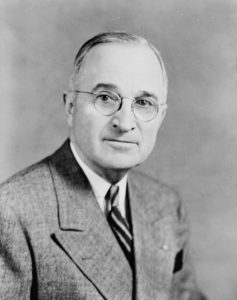Mastery of reading and writing requires a master. Still more so life
Marcus Aurelius, Meditations, 11.29
This is the fifth and final in a series of posts that will aim to teach lessons from the Stoics that can help you be a better leader, even if that means just leading your own life. The first one outlined what and why leaders have been inspired by the Stoics. This one will build on the post about having range, below, to argue that reading widely is one of the best ways to learn and inform yourself. Read the others by clicking on the links below
End of World War II American President Harry Truman is quoted as saying that not all readers are leaders but all leaders are readers. It is a necessity.
They do not read to sound grandiose. They do not read to sound good at the dinner table or on Twitter. They do not read just to challenge their minds.
They read to develop themselves. They read to find tools that they can use. They read to get better!
Far too many good brains have been afflicted by the pointless enthusiasm for useless knowledge
Seneca
In the quote above in ‘Letter From A Stoic‘, Seneca criticised literary elitists who wasted time debating trivial matters like when or who wrote The Iliad or The Odyssey. His argument was that only information that improves us is worth knowing. Everything else is trivia. Now, I’m a big fan of trivia but I only read books and, mostly, articles that will develop me.
That is what President Truman meant when he stated that all leaders are readers. That is the prescription, read what is important, so that you can help your friend or client who is in pain or having a crisis.
It is obvious from the writings of The Stoics that they were life-long learners. Marcus Aurelius’ Meditations begins by listing the small or big lessons he got from the numerous persons he encountered in his life. Seneca permanently examined other persons’ lives to see what they did well and lessons they learnt.
It is impossible to begin to learn that which one thinks one already knows
Epictetus
Epictetus was recognising his own biases as well as the biases of his hero Socrates, who invariably questioned everything and put theories to the test, hence the ‘The Socratic method‘, a form of cooperative argumentative dialogue between individuals, based on asking and answering questions to stimulate critical thinking and to draw out ideas and underlying presupposition.
Leaders Who Were Readers of Stoic Philosophy
Many leaders, especially in the military, often referenced the Stoics. Frederick II, known as Frederick the Great, – who ruled the Kingdom of Prussia 1740 – 1786 (the longest reign of any Hohenzollern king), accomplished his many military victories including his final success against great odds in the Seven Years’ War, reorganised the Prussian armies, and was a patron of the arts and the Enlightenment – kept copies of Stoic literature in his saddlebags. Cato the Younger, sworn enemy of Julius Caesar, demonstrated true stoicism by making a career out of purity, not bowing to ceaseless pressure to compromise, achieved and wielded power by disdaining power. Cato could be the main reason why the everyday (mis)understanding of being a stoic involves a ‘stiff upper lip’ and persevering.

More recently, General James Mattis, former United States Marine general and 26th United States Secretary of Defenc (January 2017 – January 2019) . emulated Frederick II by carrying Marcus Aurelius’ Meditations with him on campaigns in the Persian Gulf War, the War in Afghanistan, and the Iraq War.
Reading is an honor and a gift from a warrior or a historian who—a decade or a thousand decades ago—set aside time to write… If you haven’t read hundreds of books, you’re functionally illiterate.
General James Mattis
As was pointed out by Marcus Aurelius (see below), General Mattis states that we humans have been battling, killing, warring and dying and repeating the same patterns for eons. To not learn from others successes and failures is opportunities lost and ridiculous. For commanders and leader to send troops into battle and risk making the ultimate sacrifice, and not learn from it is beyond unethical, it is scandalous.
It is equally as true for professions that do not involve a risk to life. If you work for a company that has a board of directors and/or investors, it is liable to not be reading and learning as much as possible, especially from the mistakes of other business persons. What is the benefits of trying to guesstimate how to lead a sports team all by yourself without looking for tips, tricks and lessons from experienced coaches and pundits of the sport who have published books?
There is no ‘on-the-job training’ for a emperor or their advisor, but you can be certain that both Marcus Aurelius and Seneca, who advised Nero, read extensively from and about the rulers who came before their times. They could not afford to not do as good a job s possible, though in Seneca’s case he ultimate price because Nero was a poor student.
General Mattis’ – and Seneca’s—view is that no leader is exempt from having to study. Once you reach a leadership position, that is when the real work starts, and you should have prepared yourself before you get there. Readers need to read widely, and have a wide range of interests, including philosophy, history, journalism, and biographies of both successful and unsuccessful persons.
Read as much as you can, whenever you can. A good place to start is any of the books recommended in my Books Club page, or any of the recommendations below… If you do not, it is a dereliction of duty.
35 Books To Build Your Character: The Definitive Reading List on Humility and Ego… Cautionary Tales
5 Books That Influenced Tim Ferriss
11 Books Not To Miss in 2017, According To The World’s Most Influential Persons
Recommended Reading By 50 Billionaires, Mega Bestselling Authors, and Other Titans
Enjoy!
Scott
To bear in mind constantly that all of this has happened before. And will happen again—the same plot from beginning to end, the identical staging. Produce them in your mind, as you know them from experience or from history: the court of Hadrian, of Antoninus. The courts of Philip, Alexander, Croesus. All just the same. Only the people different.
Marcus Aurelius, Meditations, 10.27
If you’ve seen the present then you’ve seen everything—as it’s been since the beginning, as it will be forever. The same substance, the same form. All of it.
Marcus Aurelius, Meditations, 6.37
Everything has always been the same, and keeps recurring, and it makes no difference whether you see the same things recur in a hundred years or two hundred, or in an infinite period.
Marcus Aurelius, Meditations, 2.14
Over and over again…the world is continually renewed.
Marcus Aurelius, Meditations, 7.25
Source: https://dailystoic.com/leadership/



